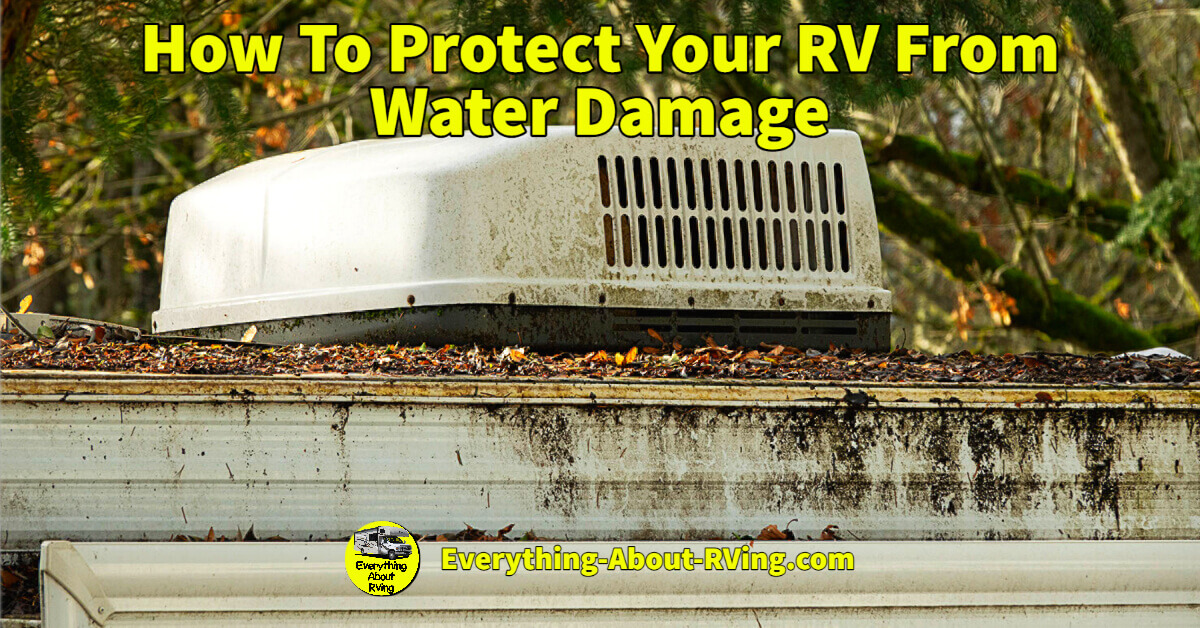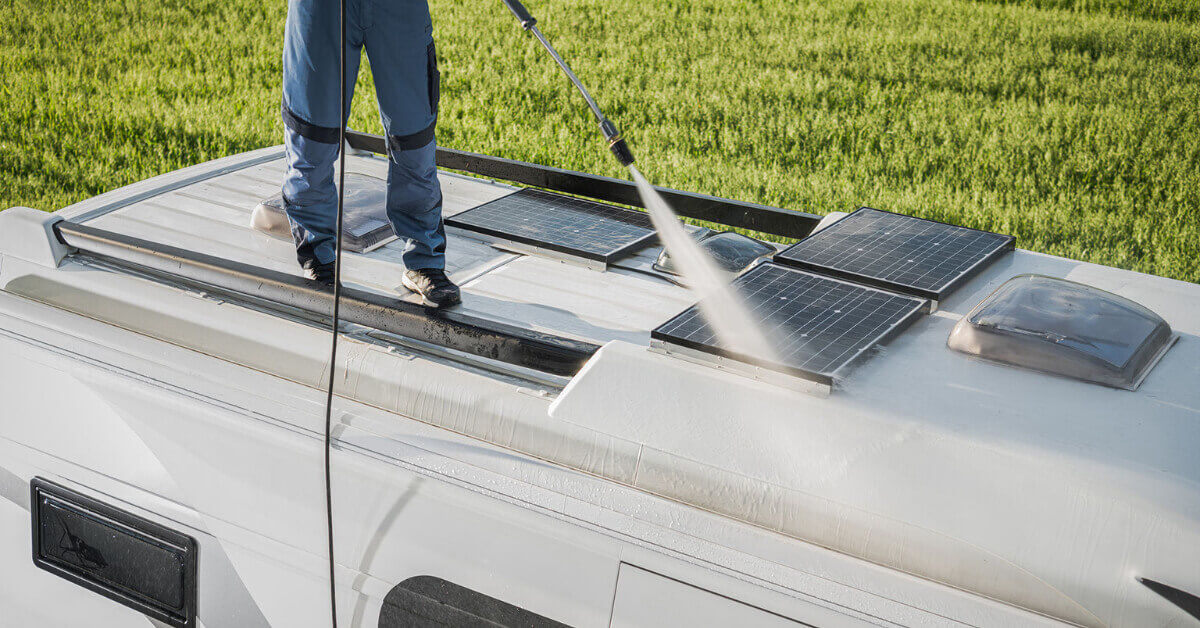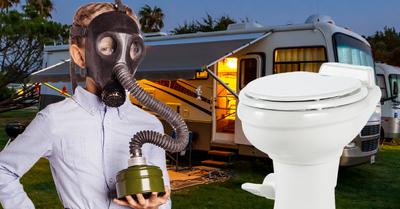- Home Page
- RVing Tips & Tricks
- How to Protect Your Rv From Water Damage
How To Protect Your RV From Water Damage
An RV can be an expensive investment, so you need to learn how to protect your RV from water damage
A recreational vehicle is undoubtedly the best thing anyone can have for traveling, both in style and in the comforts of home. Unfortunately, with the undeniable freedom and convenience of traveling at your leisure, you also need to be prepared for several problems that come with an RV. One of the most significant types of damage a recreational vehicle can suffer is water damage. So, you need to know how to protect your RV from water damage.
Well, all you need to do is perform regular inspections and repairs of the roof, seals, and seams, frequent roof maintenance, keep the RV clean and dry and avoid condensation to protect the RV from water damage.
Though every RV is designed to withstand a certain amount of elements, with constant exposure, damage can occur. But there is no need to worry, as today, in this guide, we will share tips on protecting your RV from water damage.
What Causes Water Damage to A RV?
Before we get into how you can protect your RV from water damage, let's look at what causes RV water damage. So, here we go!!!
- RV Roof leaks
- Loose or damaged trim
- Condensation
- High humidity
- Improper use and storage
- Improper construction
- Flooding
How To Protect Your RV From Water Damage
If you're not careful with your RV, you could suffer significant damage from leaks and water. But fortunately, regular maintenance will help you avoid RV water damage, save on expensive repairs, and keep your RV in excellent condition for a long time.
So, let's find out how to protect your RV from water damage-
Check For Roof Leaks
The roof provides maximum protection to your RV from almost all external elements. And that's precisely why you need to give it the utmost attention to keep it in good condition.
Checking for roof leaks every once in a while should be the number one item on your RV maintenance checklist. So, make sure to inspect your roof for cracks and leaks and maintain it with the following things-
- Clean the roof frequently using mild soaps.
- Look for TV and radio antennae, roof vents, skylights, and solar panel mounting brackets, and seal them.
- You can use a self-leveling sealant
- to seal the roof joints and touch up any cracks.
- Use fiberglass repair tape for rips or tears if your RV's roof is fiberglass.
- You can use EPDM (durable synthetic rubber roofing membrane) and Dicor coatings to clean rubber roofs. You can also use rubber roof cleaning kits.
Additionally, make sure to follow the manufacturer's guidelines, as some cleaners can do even more damage than water.
Ensure The Corner Trims Are Not Distorted
RV corner trims are well known for preventing rainwater from entering the RV. Also, corner trims are great for saving the RV from high winds and rain.
Long rides on the road, rain, hail, and other elements can weaken the RV's sealants and seams and damage the trim. This will expose the RV's interior to moisture, condensation, wind, and snow.
Also, when it rains, water will pool on your RV's roof, damaging its interior and walls. So, if this is your case, you must replace and bend your RV's trim. To understand this process quickly, you can look at how to bend RV corner trim.
Avoid Condensation
Due to excess moisture, humidity, amount of moisture in the air, and other elements, water changes from vapor to liquid, which condenses and damages your RV. By monitoring the humidity levels inside your RV, you can conveniently avoid this.
Therefore, it is essential to keep the inside humidity of your RV lower by increasing the air ventilation. So, if the RV's humidity level is too high, you can leave the roof vent open and open the window over your sink to ventilate your RV.
Store The RV Properly
Another cause of water damage is improper RV storage, which can cause dampness and moisture in the RV.
So, before you are going to store your RV for an extended period, you must consider the following things:
- Ventilate the inside of the RV for a while by opening windows and using a fan or air conditioner (not in cold weather).
- To reduce condensation during extreme weather, you should insulate single-pane windows.
- Store the RV in gravel instead of dirt.
- Try to park your RV in the sunlight instead of the shade.
- Store the RV indoors if possible, or you can use a cover in winter.
Check Electronic Appliances
Regularly check all your electronic appliances, like fridges, AC, etc., to prevent water damage. A malfunctioning refrigerator inside your RV or older appliances may cause harmful leaks and damage to the walls or floor of your RV.
Keep The RV Clean
Keeping your RV clean works great for preventing leaks. Accumulating dirt over a long period can stain your RV's membrane, weakening it.
Again, if it has too much dirt on the roof, it will get thickened over time and become heavy enough to damage the roof's structural integrity and causes the roof to leak water into the RV.
To avoid this, it is essential to keep your RV clean using mild dish soap or a special type of cleaner suitable for the RV.
Remember, you can't use all types of cleaning supplies on the RV. Avoid any cleaners that come with abrasives, citrus ingredients, or petroleum solvents.
Wrapping Up
In general, you must invest a large amount of money to buy a good RV, and you certainly don't want it to get damaged too quickly and spend more money on its repairs.
Thus, you need to take proper care of your RV to make it more enjoyable for vacation, avoid expensive repairs, and maintain its value for a long time.
So, that's all for how to protect your RV from water damage. We hope you find this post helpful in understanding what you need to do or not to keep your RV protected from water damage.
Recent Articles
-
Everything About RVing
Everything About RVing will give you Ultimate tips, expert advice, and essential guides for unforgettable adventures on the open road. -
Citation camper
Hi I have a citation camper that I got at a auction with no title I believe the camper is in the 1990's an I live in upstate NY but not sure I have two -
Turkey Salad Sandwiches
EDITOR'S NOTE: This Recipe was submitted on the Favorite Camping Recipes Page Once you have finished diving into this Thanksgiving Leftover Recipe, you -
Eliminating RV Sewage Smell
This story was submitted on our RVing Tips and Tricks Page I'm a professional motorcoach driver. (Tour bus) We do use the blue enzyme packets. Although -
Winegard ConnecT 2 WiFi Extender Review
Does the Winegard ConnecT 2 WiFi Extender really work? Read our Winegard ConnecT 2 WiFi Extender Review to find out what happened when we tested it





